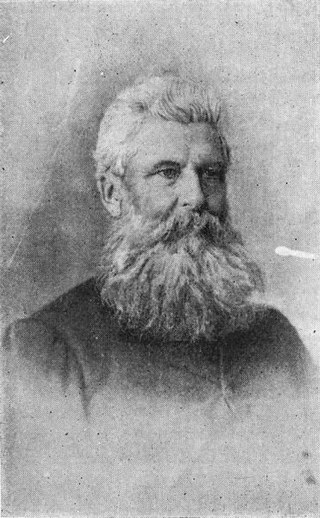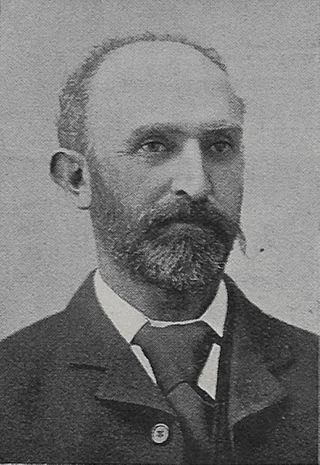Related Research Articles
West Coast is a former New Zealand Parliamentary electorate, from 1972 to 1996.
Grey Valley is a former parliamentary electorate in the West Coast region of New Zealand. The electorate was created for the 1871 general election as a single-member electorate, became a two-member electorate for the 1876 general election, and was split between the single-member electorates of Greymouth and Inangahua for the 1881 general election.
Westland Boroughs was a parliamentary electorate in the West Coast of New Zealand from 1866 to 1870.
Westland South was a parliamentary electorate on the West Coast of New Zealand from 1868 to 1870.
Westland was a parliamentary electorate in the West Coast of New Zealand from 1866 to 1868 and 1890 to 1972. In 1972 the Tasman and West Coast electorates replaced the former Buller and Westland electorates.

Charles Edward Button was a solicitor, Supreme Court judge, Mayor of Hokitika and later Birkenhead, and an independent conservative Member of Parliament in New Zealand. Born in Tasmania, he came to New Zealand with his wife in 1863. He first lived in Invercargill, then in Westland, and after a brief period in Christchurch, he settled in Auckland. He was an MP for two periods, and when he was first elected to Parliament, he beat his colleague, friend, political opponent, and later Premier Richard Seddon; this was the only election defeat ever suffered by Seddon.
The 4th New Zealand Parliament was a term of the Parliament of New Zealand.

Joseph Petrie was a 19th-century Member of Parliament from Westland, New Zealand.
William Henry Harrison was a 19th-century journalist from Greymouth who represented two Westland electorates in the New Zealand House of Representatives.
Edmund Barff was a 19th-century Member of Parliament from the West Coast, New Zealand.
John Bevan was a 19th-century member of the House of Representatives. He was an auctioneer and merchant from Hokitika on the West Coast of New Zealand.

Gerard George Fitzgerald was a 19th-century Member of Parliament in New Zealand. Like his brother James FitzGerald, he was a journalist of considerable ability, and co-founded The Southland Times in 1862. For the last 19 years of his life, he was editor of The Timaru Herald.
John White was a 19th-century member of the House of Representatives from the West Coast, New Zealand.
The New Zealand Constitution Act 1852 authorised the General Assembly to establish new electoral districts and to alter the boundaries of, or abolish, existing districts whenever this was deemed necessary. The rapid growth of New Zealand's European population in the early years of representative government meant changes to electoral districts were implemented frequently, both at general elections, and on four occasions as supplementary elections within the lifetime of a parliament.
The Mayor of Hokitika officiated over the borough of Hokitika in New Zealand. The office was created in 1866 when Hokitika became a municipality and a borough two years later, and ceased with the 1989 local government reforms, when Hokitika Borough and Westland County merged to form Westland District. The first Mayor of Hokitika was James Bonar.

Westland County, also known as County of Westland, was a local government area on the West Coast of New Zealand's South Island. It existed from 1868 to 1873, and then from 1876 until 1989. In its first incarnation, it constituted the government for the area that was split from the Canterbury Province, with the West Coast gold rush having given the impetus for that split. It had the same administrative powers as a provincial council, but the legislative power rested with Parliament in Wellington. The first Westland County was the predecessor to Westland Province.
The 1947 Westland by-election was a by-election held during the 28th New Zealand Parliament in the South Island electorate of Westland. The by-election occurred following the death of MP James O'Brien and was won by Jim Kent.

The Hokitika by-election 1878 was a by-election held in the multi-member Hokitika electorate during the 6th New Zealand Parliament, on 26 June 1878. The by-election was caused by the resignation of incumbent MP Charles Button and was won by Seymour Thorne George, who defeated Gerard George Fitzgerald. Thorne George was suggested as a candidate by the premier, Sir George Grey; he was the Premier's nephew, and lived in the North Island.

The Hokitika Borough was the borough council covering the urban part of the town of Hokitika, New Zealand between 1867 and 1989, when Hokitika Borough and Westland County merged to form Westland District.

The Hokitika Clock Tower, initially called the Westland War Memorial and then the Coronation and War Memorial, is a prominent landmark in Hokitika, New Zealand. The memorial was initiated, fundraised for, and carried out by a committee, to commemorate the region's contribution to the Second Boer War; not just the four local men who had died but all 130 who had gone to war in South Africa. An additional purpose was to provide Hokitika with a town clock.
References
- 1 2 "Election for the Westland Boroughs. The Nomination". West Coast Times. No. 788. 2 April 1868. p. 5. Retrieved 4 May 2013.
- ↑ McRobie, Alan (1989). Electoral Atlas of New Zealand. Wellington: GP Books. p. 36. ISBN 0-477-01384-8.
- ↑ Scholefield, Guy, ed. (1940). A Dictionary of New Zealand Biography : A–L (PDF). Vol. I. Wellington: Department of Internal Affairs. p. 364. Retrieved 6 October 2013.
- ↑ "West Coast Times". National Library of New Zealand . Retrieved 23 September 2015.
- 1 2 "The Westland Boroughs". West Coast Times. No. 790. 4 April 1868. p. 2. Retrieved 4 May 2013.
- ↑ "West Coast Times (editorial)". West Coast Times. No. 790. 4 April 1868. p. 5. Retrieved 4 May 2013.